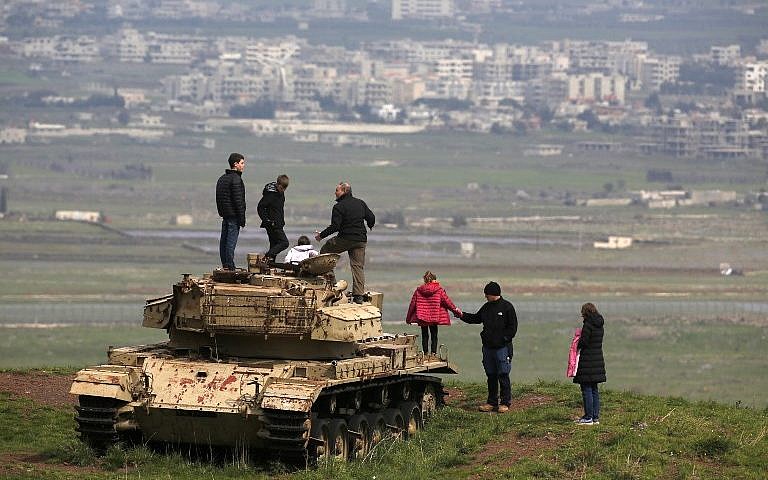Syrian President Bashar Assad said in an interview with Russian state news Thursday that peace talks with Israel would only take place if the Israelis return the Golan Heights to Syrian control.
In the interview, Assad said that Syria would hold peace talks with Israel only when the Jewish state was ready “to return the occupied Syrian land.”
Israel captured the Golan Heights from Syria during the 1967 Six Day War and the two countries have been technically at war ever since.
Assad’s statements seemingly came in response to recent speculation that Syria is interested in negotiations with Israel in order to alleviate crushing economic sanctions imposed by the United States.
The report by Ibrahim Hamidi, a senior diplomatic editor at the Asharq al-Awsat newspaper and an expert in Syrian affairs, speculated that Syria’s silence on the recent normalization accords between Israel and the United Arab Emirates and Bahrain, along with a delivery of Humanitarian aid from the UAE, indicated Syria was interested in coming to the table in order to appease the Americans.

People stand on top of an old tank near the border with Syria in the Golan Heights on March 23, 2019, across from the Syrian city of Quneitra. (Jalaa Marey/AFP)
Asked about normalization with Israel, Assad said that normalization is possible “only when we can reclaim our land, it is very simple,” he said.
Assad also emphasized in the interview that Syria was not negotiating with Israel.
Israel and Syria have fought three major wars since the establishment of the Jewish state. After the Israeli capture of the Golan Heights in 1967, hypothetical peace agreements between the two nations have been characterized by the Syrian drive to regain control of the territory. Throughout the 1990s talks were held between the Israelis and former Syrian president Hafez Assad that eventually failed.
Since the start of the Syrian civil war in 2011 Israel has launched hundreds of strikes in Syria, targeting government troops, allied Iranian forces, and fighters from the Lebanese Shiite terror group Hezbollah.
Israel rarely confirms details of its operations in Syria, but says Iran’s presence in support of Assad and Hezbollah is a threat and that it will continue its strikes. The raids are coordinated with Russia to avoid a clash between its forces, and cooperation between Moscow and Jerusalem has widely been touted by its leaders as tight, despite Russia’s alliance with Iran, Israel’s enemy, and its occasional condemnations of the Israeli raids.

Smoke billows following an alleged Israeli airstrike south of Damascus, Syria, on July 20, 2020 (AFP)
In June, American legislation called the Caesar Syria Civilian Protection Act came into force and represented a vast financial pressure campaign on the Syrian government for its human rights abuses during the Syrian Civil War, in which at least 380,000 people have lost their lives, according to the Syrian opposition.
The first batch of sanctions targeted 39 people or entities, including Assad personally as well as his wife, Asma. It also penalized in the United States any company that did business with Assad.
Fears of action against foreign investors under the Caesar Act have wreaked further havoc on Syria’s shattered economy by dimming hopes for reconstruction.
Agencies contributed to this report.
 RSS Feed
RSS Feed















 October 9th, 2020
October 9th, 2020  Awake Goy
Awake Goy  Posted in
Posted in  Tags:
Tags: 













